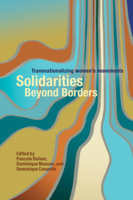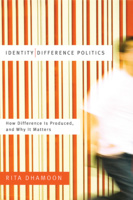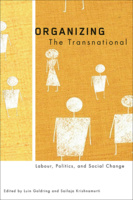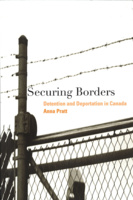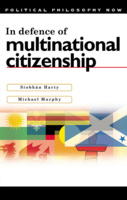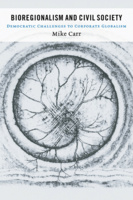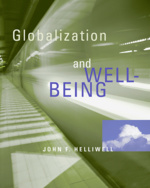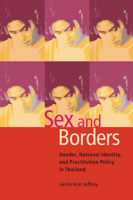Solidarities Beyond Borders
Transnationalizing Women's Movements
Case studies from North America, Latin America, and Southeast Asia explore the challenges and benefits of building transnational ties among feminists and women’s groups.
Indigenous Peoples and Autonomy
Insights for a Global Age
This book looks at how indigenous peoples in various contexts have thought about, and responded to, the pressures that globalization has on their cultural, political, and geographical autonomy.
Cultural Autonomy
Frictions and Connections
Offers a multifaceted perspective on how global changes in the organization of power have transformed the ability of individuals and communities to create their own meanings.
A Perilous Imbalance
The Globalization of Canadian Law and Governance
Tackles the pressing question of how Canadian engagement with globalization can be marshaled to advance rather than impair human security, ecological integrity, and social emancipation.
Unsettled Legitimacy
Political Community, Power, and Authority in a Global Era
This ground-breaking work explores how the unsettling of legitimacy has affected the relationships between authority, power, and political community in local, regional, national, and global settings.
Empires and Autonomy
Moments in the History of Globalization
This collaborative study explores moments in the history of globalization and autonomy to provide insights into changes overtaking the contemporary world.
Identity/Difference Politics
How Difference Is Produced, and Why It Matters
Identity/Difference Politics offers a new direction for the study of identity/difference, one that moves beyond liberal multiculturalism’s preoccupation with culture.
Renegotiating Community
Interdisciplinary Perspectives, Global Contexts
Using original case studies to show how a range of communities deal with the forces of globalization, this book redraws the conceptual maps through which community, globalization, and autonomy are understood.
Global Ordering
Institutions and Autonomy in a Changing World
This innovative, interdisciplinary work explores key institutional fault lines between the tectonic plates of globalization and the insistent demands for individual and collective autonomy.
Organizing the Transnational
Labour, Politics, and Social Change
This collection articulates a multi-level cultural politics of transnationalism to frame contemporary analyses of immigration and diasporas.
From World Order to Global Disorder
States, Markets, and Dissent
Demonstrates the profound effect of globalization on relations between the state, civil society, and markets, as well as on collective and individual rights.
Genetically Modified Diplomacy
The Global Politics of Agricultural Biotechnology and the Environment
This book traces the emergence of the 2000 Cartagena Protocol on Biosafety – and the discourse of precaution toward GEOs that the protocol institutionalized internationally.
Securing Borders
Detention and Deportation in Canada
A close look at the laws, policies, and practices of detention and deportation in Canada since the Second World War.
Biotechnology Unglued
Science, Society, and Social Cohesion
The two faces of biotechnology are revealed throughout to show the promises and perils associated with a range of innovations.
Humanitarianism, Identity, and Nation
Migration Laws in Canada and Australia
Catherine Dauvergne examines the relationship between migration laws and national identities and highlights the role of humanitarianism in this linkage.
Bioregionalism and Civil Society
Democratic Challenges to Corporate Globalism
Mike Carr supports bioregional values and community-building tools for a diverse, democratic, socially-just civil society.
Globalization and Well-Being
Throughout this concise and elegant book, John Helliwell emphasizes well-being as an explicit focus for research and for public policies.
Sex and Borders
Gender, National Identity and Prostitution Policy in Thailand
A compelling exploration of the complex relationship between Thai national identity and prostitution and gender.

